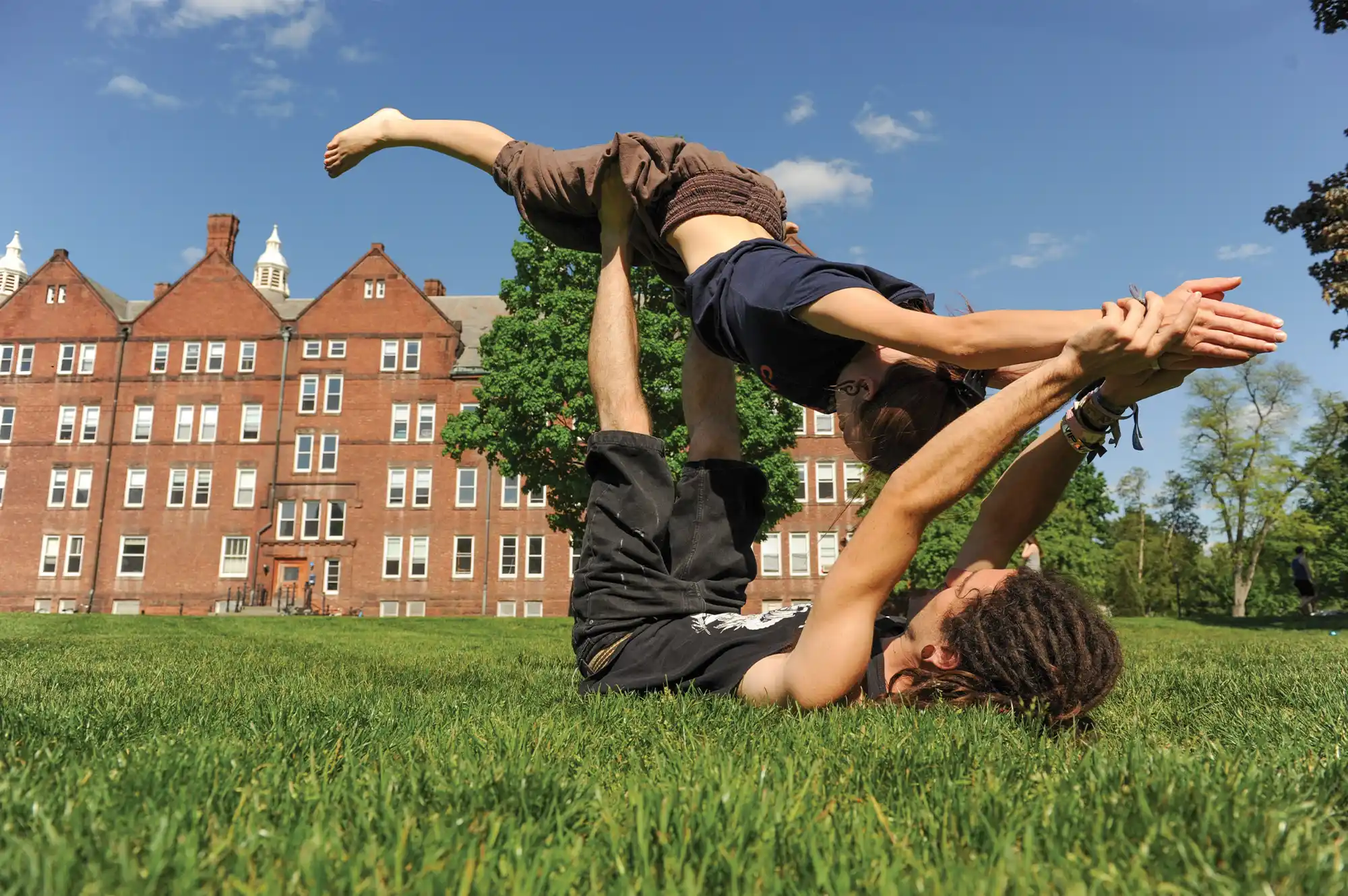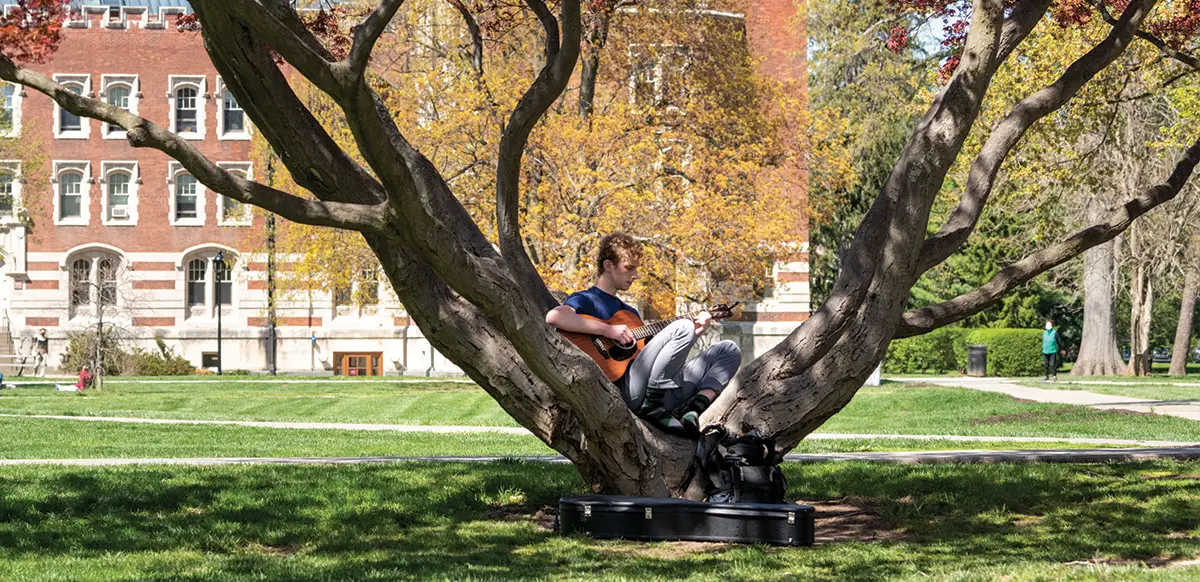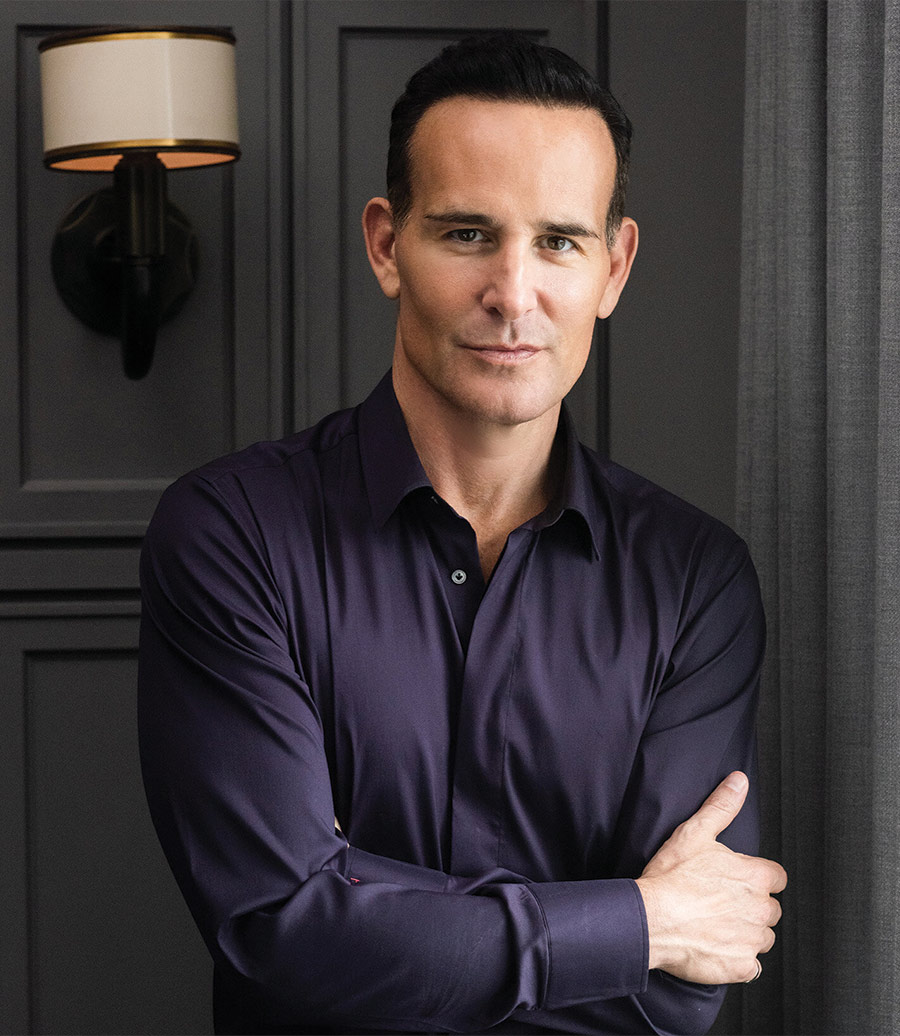
Dr. Paul Frank ’91 Gifts Endowment for Vassar’s Health and Wellness Program
“I kind of minored in art history and I was pre-med, so my roster was pretty full at Vassar between academics and social life,” Frank said. “But at the time, I would say Vassar was not a place that one who wanted to pursue medicine would go. I think in my graduating class, there were maybe only eight of us that applied to medical school.”
Frank, a psychology major at the time, felt supported by the College in his pursuits. And now, as a successful dermatologist practicing in Manhattan, where he lives with his family, he wanted to find a way to give back to Vassar and its students.
Frank, who regularly stays in contact with Vassar and attends his reunions, noted improvements made to the science, technology, engineering, and math (STEM) programs on campus, including the building of the Bridge for Laboratory Sciences, since he graduated.
Vassar has since become a leading college for pre-med students. Over the last decade or so, about 100 to 150 entering freshmen typically express interest in a health profession, including public health, nursing, dentistry, veterinary medicine, social work, and more. Following their time at Vassar, about 88 percent of pre-health students are accepted into medical school.
“It appears now that Vassar tends to attract a lot more people who are interested in science, law, engineering, things of that nature,” Frank said. “I often tell people that, in many ways, I learned more about being a physician at Vassar than I did in medical school. So much about your college experience is about your social evolution, development, and learning how to deal with people, which is, truthfully, the most important part of medicine—above and beyond knowing anatomy, physiology, and what medicines to prescribe.”
For today’s students, with stressful national and global events occurring regularly, Frank has turned his attention to supporting health and wellness at his alma mater. He recently made an endowed gift to Vassar’s health and wellness program, an integral part of the Fearlessly Consequential campaign, in the hopes it can help students take care of themselves so they too can be successful.

Before committing his gift, he knew he wanted it to have something to do with the mental health and wellness of Vassar’s students, whether his gift helped with access to meditation, exercise, yoga, and mental health facilities, or enhancing those types of services for the students facing this ever-changing and challenging world.

Portrait, courtesy of the subject
During his Vassar days, Frank said the College community was a diverse one—ethnically, socioeconomically, etc.—and was part of the social-liberal evolution. He remembers hearing stories of students going through tough times and having to take time away from school or having thoughts of self-harm due to the pressures of life. But he knows that Vassar offered the resources students needed.
“Vassar was a type of place that supported people for whoever they were,” Frank said. “To this day, I still think that is a prominent part of Vassar’s ethos. It seems like now, in today’s world, more colleges have programs for this. But back in the ’80s, it was very unique.”
Frank’s fund will help to establish an endowment that will provide funds for health and wellness initiatives including front-line staff, yoga instruction within the residence halls, outside speakers, nutritionists, and sponsored workshops for things like healthy and affordable cooking practices and mindfulness practices—just to name a few.